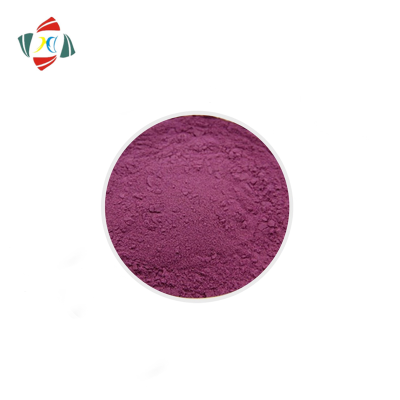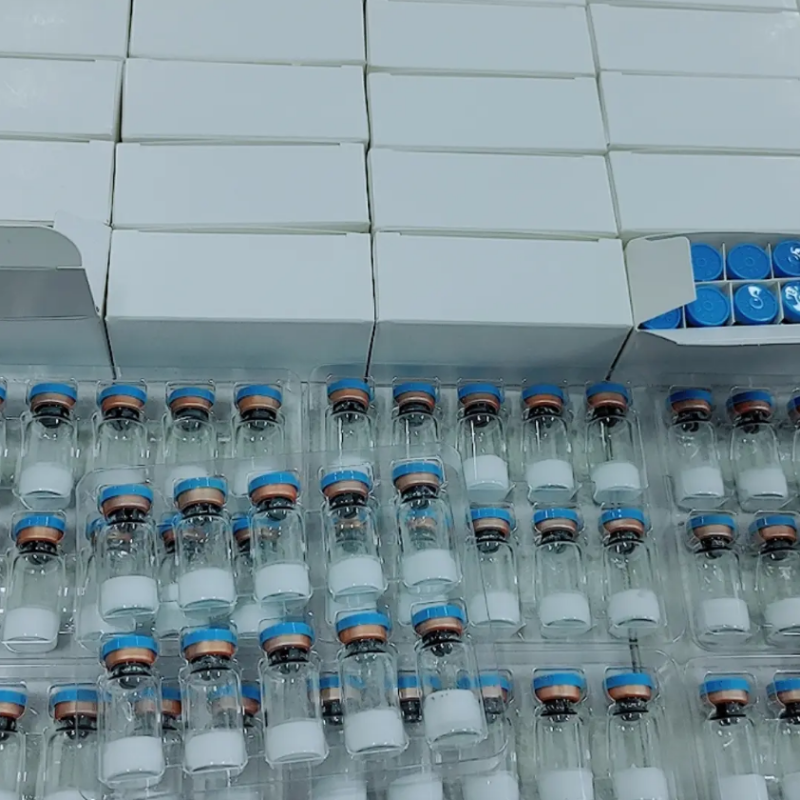-
Categories
-
Pharmaceutical Intermediates
-
Active Pharmaceutical Ingredients
-
Food Additives
- Industrial Coatings
- Agrochemicals
- Dyes and Pigments
- Surfactant
- Flavors and Fragrances
- Chemical Reagents
- Catalyst and Auxiliary
- Natural Products
- Inorganic Chemistry
-
Organic Chemistry
-
Biochemical Engineering
- Analytical Chemistry
- Cosmetic Ingredient
-
Pharmaceutical Intermediates
Promotion
ECHEMI Mall
Wholesale
Weekly Price
Exhibition
News
-
Trade Service
The incidence of autoimmune diseases in the global population is about 7.
6% to 9.
4%, and it is showing a rising trend.
However, the pathogenesis and regulatory mechanism of most autoimmune diseases are not yet clear, so there is a lack of targeted treatment methods
.
Studies have found that CD8+ T cells expressing Ly49 receptors in mice have immunomodulatory functions [1], and can specifically kill MOG-specific pathogenic CD4 cells in a mouse model of experimental autoimmune encephalomyelitis (EAE).
+ T cells [2], thereby inhibiting disease progression
.
However, it is unclear whether similar CD8+ T cells exist in humans and whether they play a broader role in maintaining immune tolerance
.
Answering these questions is crucial for further understanding the occurrence and regulation of human autoimmune diseases and identifying new targets for the treatment of autoimmune diseases
.
On March 8, 2022, the Stanford University research team published a research paper titled KIR+CD8+ T cells suppress pathogenic T cells and are active in autoimmune diseases and COVID-19 in the journal Science, discovering and identifying regulatory functions in the human body of CD8+ T cell subsets
.
Among them, Professor Mark Davis (Academician of the National Academy of Sciences, Academician of the Academy of Arts and Sciences, HHMI researcher) and Professor Naresha Saligrama are the co-corresponding authors, and postdoctoral fellow Li Jing is the first author
.
Although humans do not express Ly49 homologous proteins, killer cell immunoglobulin-like receptors (KIRs), like Ly49 family proteins, have co-evolved with their ligands, the major histocompatibility complex I (MHC I), and KIRs are therefore considered to be It is the corresponding protein of mouse Ly49 in humans
.
The authors found that the proportion of KIR+CD8+ T cells in the peripheral blood and affected organs of patients with autoimmune diseases increased, and that KIR+CD8+ T cells could recognize and kill celiac disease patients through T cell receptor (TCR)/MHC I Gliadin-specific pathogenic CD4+ T cells in peripheral blood
.
In addition, transcriptome analysis showed that the gene expression of KIR+CD8+ T cells was highly similar to that of mouse Ly49+CD8+ T cells
.
Therefore, KIR+CD8+ T cells in humans have similar functions and phenotypes as Ly49+CD8+ T cells in mice
.
Since pathogen infection may break through immune tolerance and activate self-antigen-specific T cells to trigger an autoimmune response, the authors also analyzed the levels of KIR+CD8+ T cells in human infectious diseases
.
The proportion of KIR+CD8+T cells in the peripheral blood of patients with COVID-19 and influenza is significantly higher than that of healthy people, and is positively correlated with the occurrence of complications of COVID-19 vasculitis, and vasculitis may be induced by autoimmune reactions, so KIR The elevation of +CD8+ T cells may be related to the autoimmune response induced by SARS-CoV-2 infection
.
In order to further elucidate the function of such CD8+ T cells in infectious diseases, the authors used gene editing to specifically remove Ly49+ CD8+ T cells in mice and established mouse LCMV and influenza virus infection models, and found that Ly49+CD8+ +T cells are not involved in the regulation of antiviral immune responses, but can suppress autoimmune responses triggered by pathogen infection
.
In conclusion, the authors discovered and identified a new subset of CD8+ T cells with regulatory functions in humans, which can selectively suppress pathogenic T cells that trigger autoimmune responses, thereby contributing to the maintenance of peripheral immune tolerance.
play an important role in
.
Their mechanism of maintaining immune tolerance is different from that of traditional CD4+ regulatory T cells (Treg) and may complement the role of CD4+ Treg
.
These findings have important implications for understanding the link between autoimmune disease and pathogen infection, understanding key mechanisms leading to immune dysregulation, and developing future therapeutics targeting KIR+CD8+ T cells
.
Original link: https:// Publisher: Eleven References 1.
HJ Kim et al.
, CD8+ T regulatory cells express the Ly49 Class I MHC receptor and are defective in autoimmune prone B6-Yaa mice.
Proc Natl Acad Sci USA 108, 2010-2015 (2011).
2.
N.
Saligrama et al.
, Opposing T cell responses in experimental autoimmune encephalomyelitis.
Nature 572, 481-487 (2019).
Reprinted Notice [Non-original article] The copyright of this article belongs to the author of the article.
Personal forwarding and sharing are welcome.
Reprinting is prohibited without permission.
The author has all legal rights, and offenders must be held accountable
.







